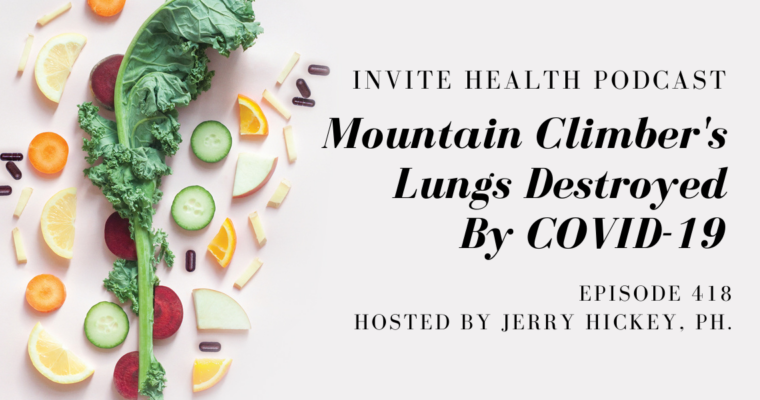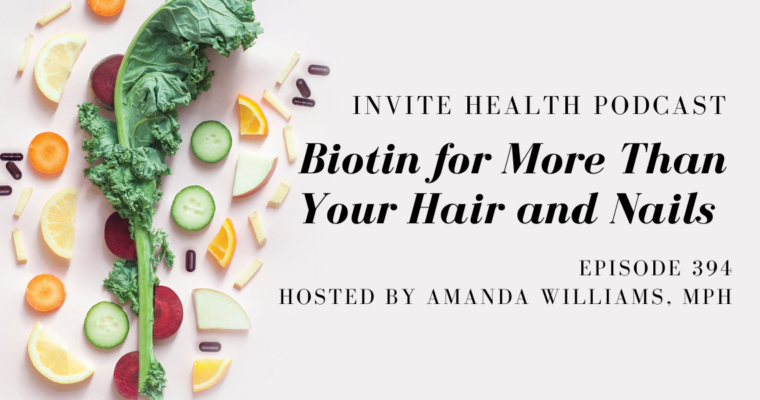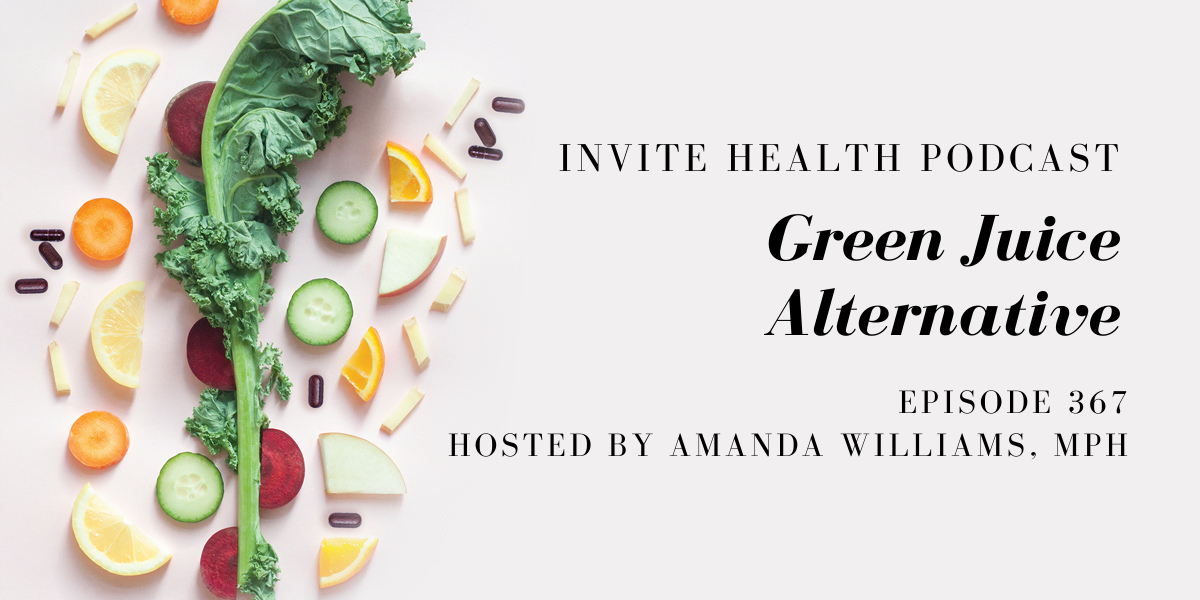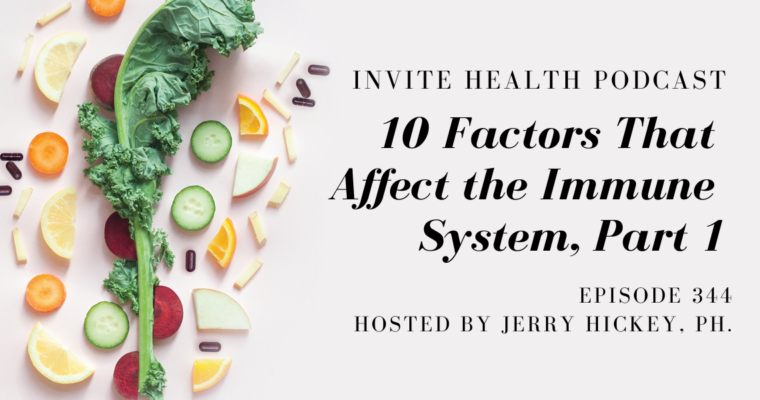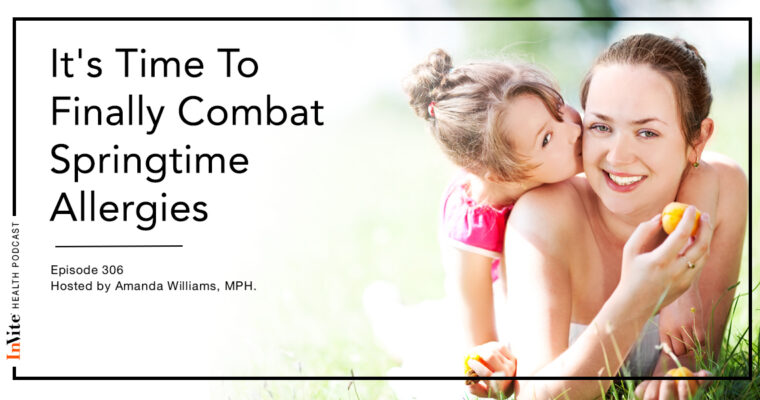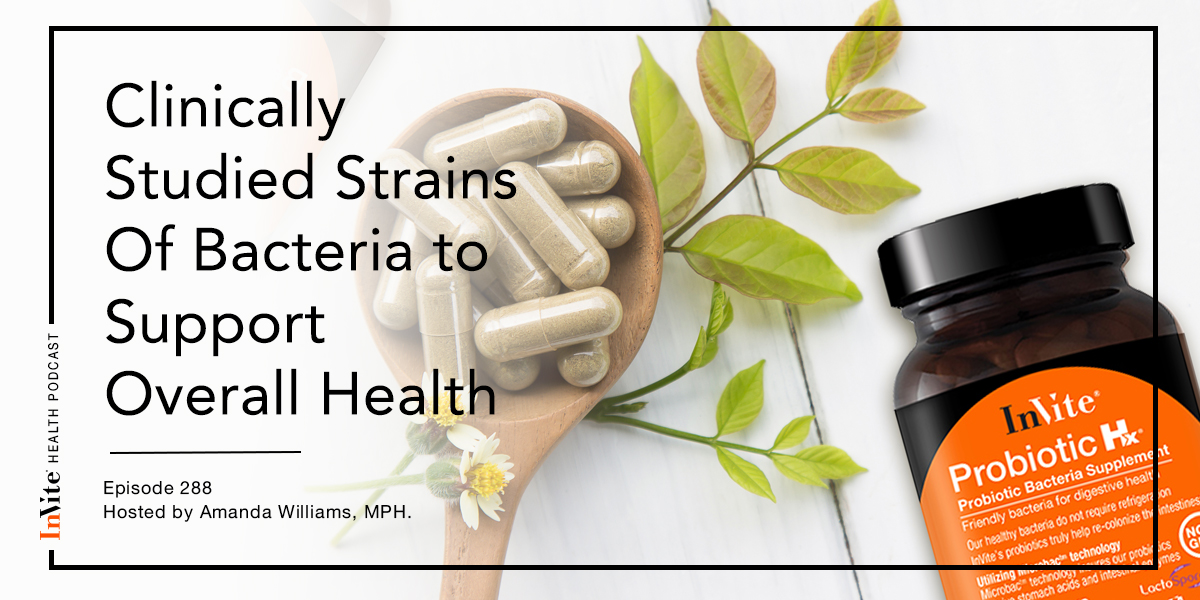bacteria
Invite Health Podcast, Episode hosted by Amanda Williams, MPH.
Subscribe Today!
By now, you’ve probably heard that the gut microbiome is an integral part of our health. We certainly know that the gut microbiome is composed of many different strains of bacteria. We also know that if we have any unfriendly bacteria that start to run amok within our intestines, then that can create havoc in our overall health. The gut microbiome is clearly a driver for our immune system. 70% of our immune system is gut-based, so when we think about intestinal health, we cannot overlook the role of those very important bacteria that we all carry around each and every single day.
When we think about probiotics, which are taking those good, healthy bacteria and incorporating them back into the microbiome, this is where quality, purity and making sure that you are using the right bacteria in your probiotic formulation really, really matters. I’m going to talk about our Probiotic Hx today because this is a wonderful five-strain blended bacterial formulation that does so much to enhance our microbial environment to really allow our immune system to thrive so we have proper inflammatory responses.†
Why You Should Take A Probiotic When On Antibiotics – InVite Health Podcast, Episode 275. Listen Now >>
Research on the impact of probiotics
A new study came out of the Institute for Systems Biology talking about how researchers have identified distinct signatures within the gut microbiome that are associated with healthy versus unhealthy aging. This is key because most people are trying to live healthy, long lives. If the bacteria are playing a predominant role in driving or dictating that, then it would be quite wise that we understand a lot more about this.†
This study was published in the Nature Metabolism journal. What the research team did was they analyzed the gut microbiome, the phenotypic and the clinical data, from over 9,000 people between the ages of 18 and over 100 years old. One of the driving points to take away from this clinical research was that the data showed that gut microbiomes became increasingly unique as individuals aged, so the older people were getting, the more unique patterns the bacteria were actually showing. I think that is why we, in the natural health world, often encourage people to make sure that they are always incorporating bacteria into their supplementation routine.†

In this particular study, they were looking at different markers in the blood and correlating that to these unique patterns of bacteria that they were detecting within the microbiome. They found that this unique pattern appeared to start in middle ages, when people were hitting 40 or 50 years old. There was this association with a clear blood metabolic signature which suggested to the researchers that these microbiome changes might not just be diagnostic of healthy aging, but they may also contribute directly to health as we age.†
Tune into the full podcast episode to learn about the relationship between bacteria in the microbiome and aging.
Boost your intake of beneficial bacteria
When we talk about incorporating bacteria into your diet and routine, we’re talking about probiotics. There are certain foods that can be very beneficial. Fermented foods like yogurt and kimchi help to stabilize and promote the proper growth or replication of those healthy bacteria. We always want to try to chase any of those bad bacteria out.†
The problem with many people who follow a Standard American Diet is that the system actually becomes overrun with these unfriendly bacteria. Then this starts to impact the aging process and normal metabolic functions and then we start to see more and more pronounced inflammation throughout the system.†
Traveling Soon? You Need These Supplements To Stay Healthy – InVite Health Podcast, Episode 231. Listen Now >>
I want to talk about the different bacteria that we use in our Probiotic Hx. This is five different strains of bacteria. It also has a prebiotic in it, too, called Inulin which kind of primes the intestines to prepare them for the introduction of these good, healthy bacteria. Our Probiotic Hx contains Bacillus coagulans, Lactobacillus rhamnosus, Bifidobacterium breve, Bifidobacterium animalis subspecies lactis and Lactobacillus plantarum. This formula is a very powerful blended probiotic strain.†
Tune into the full podcast episode to learn more about the benefits of Probiotic Hx and the bacteria it contains.
Thank you for tuning in to the Invite Health Podcast. You can find all of our episodes for free wherever you listen to podcasts or by visiting www.invitehealth.com/podcast. Make sure you subscribe and leave us a review! Follow us on Facebook, Twitter and Instagram at Invite Health today. We’ll see you next time on another episode of the Invite Health Podcast.


